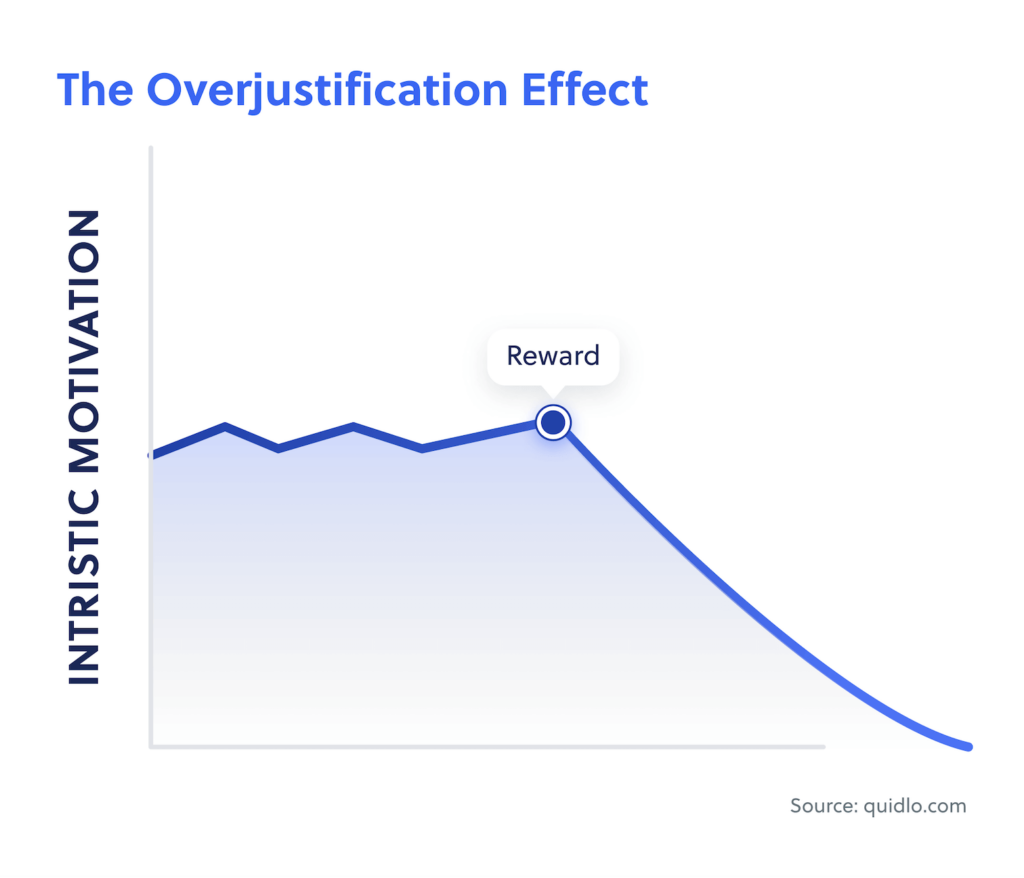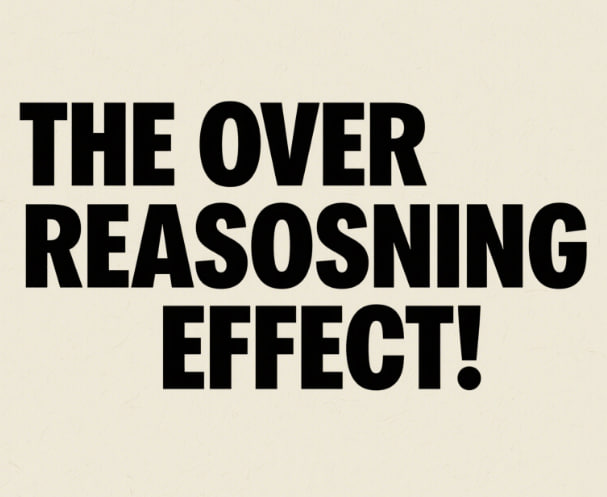What is the Overreasoning Effect?
“The Overreasoning Effect is a psychological phenomenon. Simply put, it means that people initially do something out of their inner love and interest, but later, because of external rewards such as money, praise or other benefits, they slowly stop doing it out of love and do it for the sake of getting rewards! They do it to be “rewarded”. In this way, when these external rewards disappear, the original love for the things is no longer willing to continue doing them.
In other words, external rewards can destroy people’s original internal motivation.
A funny little story: The Wise Old Man’s Brilliant Plan.
Let’s look at a very interesting story that can help us understand this psychological effect better.
Once upon a time there was an old man who lived in the country. Next to his house there was often a group of small children playing and making a lot of noise, which was very lively, but it also gave the old man a big headache, because he wanted to live quietly.

Instead of chasing the children away, the old man came up with a solution. He said to the children, “I will give some money to the one who shouts the loudest! The children were so happy to hear that they had money to give that they made more noise every day.
After a few days, the old man began to slowly reduce the amount of money he gave them. The children began to think, “Why are you giving so little today? Wasn’t it more before?” Finally, the old man simply stopped giving a penny.
The children didn’t want to argue anymore. They thought, “If he’s not going to give me any more money, why bother?” So the children left and stopped coming here to make a lot of noise.
This is an example of the “overthinking effect”. Originally the children came here to make noise for fun, but the old man gave them an external reward (money), and as a result their behavioural motivation changed from “fun” to “money”. When they don’t have money, they don’t find it fun anymore.
Why does this phenomenon occur?
In psychology, this phenomenon occurs because extrinsic rewards cause people to rethink their motivations. What started as “I like doing this” now becomes “I do this for the reward”.
When people use extrinsic reasons to explain their behaviour, they slowly lose sight of their original interests. This shift from “intrinsic motivation” to “extrinsic motivation” can lead to a loss of enthusiasm.
A common example in life.
In fact, the “over-reasoning effect” is not only in this story, it is also very common in our daily lives.
1. Misunderstandings in intimate relationships.
Between couples or lovers, we sometimes feel that what the other person does for us is “proper”, such as cooking, cleaning, taking care of the family, etc. This kind of thinking makes us neglect the other person. This kind of thinking will make us ignore the other person’s intention, thinking that it is not “caring”, just “responsibility”.
However, when a stranger or friend does these things for us, we feel that the other person is very considerate and attentive. This is because in intimate relationships we use external reasons like ‘duty’ to explain behaviour, rather than internal motives like ‘love’.
Over time, relationships tend to become cold because both parties only care about giving and receiving, ignoring each other’s feelings and understanding.
2. Children’s motivation to learn is undermined by rewards.
Many parents reward their children for good grades with money, toys and snacks. At first, this may motivate the child to study hard. But over time, the child may learn just for the reward, not because he or she finds learning interesting or wants to learn.
If there is no reward, the child will not feel the need to try harder. This practice can cause the child to lose real interest in learning and make it difficult to develop the ability to learn independently.
3. Merchants’ marketing ploys.
Many dealers will advertise by saying “Last day!” “If you don’t buy it, it’s gone!” This practice exploits human psychology by making consumers feel that they will lose out if they don’t buy now.
It actually uses an external “sense of urgency” to get you to make a decision, rather than letting you think clearly about whether you really need this thing. If we rely on this kind of external stimulus for a long time, we will lose the ability to make judgements, and we will only be guided by the external reasons such as ‘it looks like a good deal’.
What can we learn from this?
Just because the ‘overthinking effect’ is common doesn’t mean we can’t avoid it. There are ways to minimise its negative effects and maintain our intrinsic motivation.
I.Keep motivation in balance.
We can give ourselves appropriate rewards when we do something, but we should be careful not to rely on them completely. What can really keep us going for a long time is interest in the thing itself.
For example, if you like to paint, you can reward yourself with a small gift after each completed painting. But you also need to remind yourself that you started because you ‘like to paint’, not ‘to get a reward’.
II.Recognise the effects of social pressure.
We often change our behaviour because of what others think, for example, to get praise, approval or to be liked by others.
These external motives can gradually lead us away from our true selves. We need to learn to ask ourselves: “Am I doing this thing because I really want to do it for myself? Or is it just to make others happy?”
Only when our behaviour is in line with our own inner values can we feel truly happy and satisfied.
III.Encourage true intrinsic motivation.
Intrinsic motivation is more powerful than extrinsic rewards because it comes from inner interests, goals and dreams.
For example, a person who loves dancing will continue to practise even if there is no audience or applause. This is because dancing is a pleasure in itself.
In life, we can try to find what we really like and not start thinking “this thing cannot bring any benefit”. If we can concentrate on the process rather than the result, it’s easier to maintain enthusiasm.
Summary: Rewards can be there, but don’t rely on them alone!
The “over-reasoning effect” tells us this: Appropriate rewards can help people behave well, but over-reliance on rewards can cause people to lose interest.
In all aspects of education, work and relationships, we need to be careful: Don’t be swayed by external reasons for our behaviour, but rather maintain a passion and understanding for the thing itself.
It is the love within that truly drives us forward, not external rewards.

